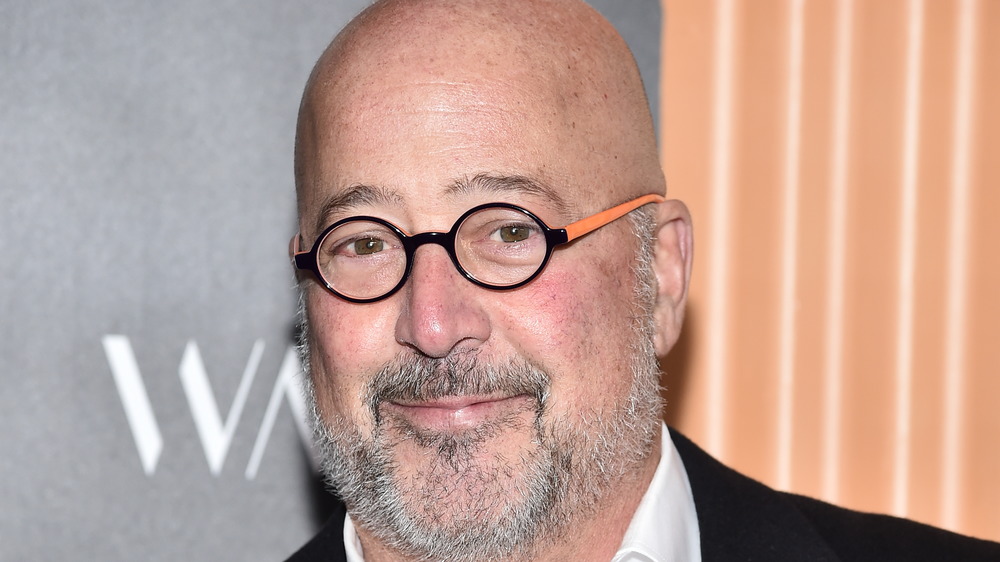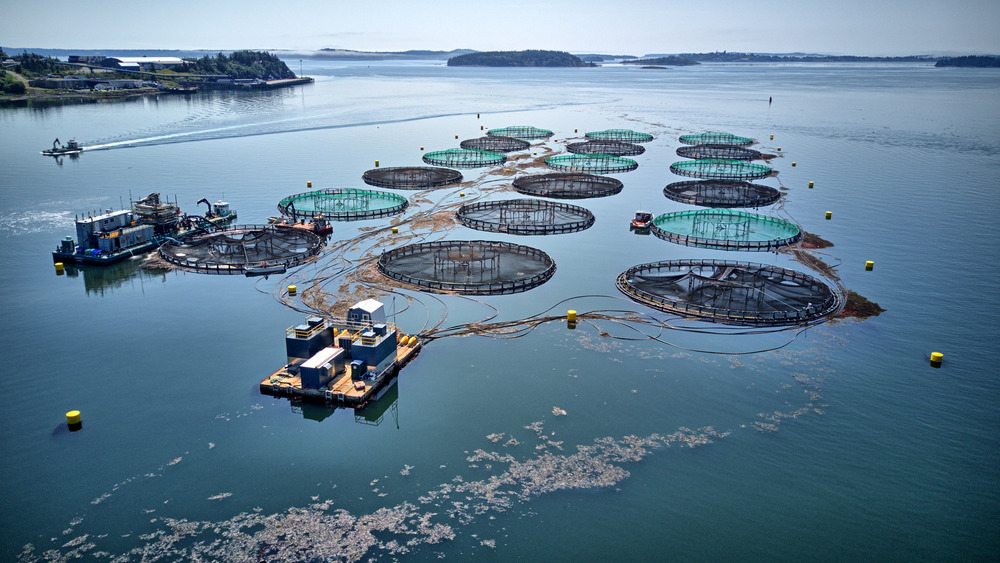Andrew Zimmern Thinks This Type Of Food Can Save The Planet
In the last couple of years, Andrew Zimmern has begun to embrace the concept of aquaculture. In July 2020, he joined a panel discussion about the role aquaculture will play in the future of food hosted by the Norwegian salmon farm Kvarøy Arctic Salmon, which you can watch on YouTube. In December, he extolled its virtues to Margaret McSweeney on her podcast Kitchen Chat. He even published a whole editorial for the practice on his website. It is safe to say then that he very publicly believes in aquaculture.
Aquaculture is, as the Encyclopedia Britannica describes, is the farming of fish, shellfish, and aquatic plants in controlled conditions, rather like how one would farm a chicken.
Zimmern's wholehearted endorsement of this comes, as he explains in the editorial on his website, from the recognition that the food revolution that usurped the butchers with the supermarket has affected fish as well. Moreover, to sustain the demand for fish in the grocery store during these environmental and food crises, a sustainable source of fish that does not feed upon natural ecosystems is needed.
In a SXSW talk that the Global Aquaculture Alliance transcribed, Andrew Zimmern bluntly states "It's a solution that helps save our planet... It touches the oceans, it touches climate change, it touches nutrition and the future of how we'll feed ourselves. That's the power that food has."
Aquaculture today falls short but has promise
Aquaculture is set to receive renewed attention from the government as the Biden administration settles further. However, a letter issued by Friends of Earth, Desmog reports, warns that many aquaculture ventures interrupt the patterns of wild fish, spread diseases, and contaminate industrial water.
But, as the piece continues, many fish farms resort to feeding their livestock fishmeal, a powder made from the grinding of smaller fish that usually serve as the food for other types of carnivorous fish and birds. However, researchers have noted other sources, such as single-cell proteins produced by viruses and bacteria, though none yet have scaled to affordability.
If fish farms refrain form fishmeal in favor of crop-based food, they still run into trouble. As a piece published by Phys.org points out, if the farming of fish requires an extensive agricultural structure to supply the feed, then the sustainability of aquaculture may be illusory because of the pressures of feed farms already place upon the environment. A 2014 article by Vox estimates that the then percentage of farmland used globally to feed animals is 36 percent and rises to 67 percent when we consider the United States alone.
So, aquaculture cannot be considered a panacea. However, as Andrew Zimmern argues in his editorial, the quality of aquacultural products has improved over the years with specific companies, like his favored Verlasso, creating a harmonious balance between commercial salmon and the environment. Ensuring this simply requires rigorous regulation and work.

